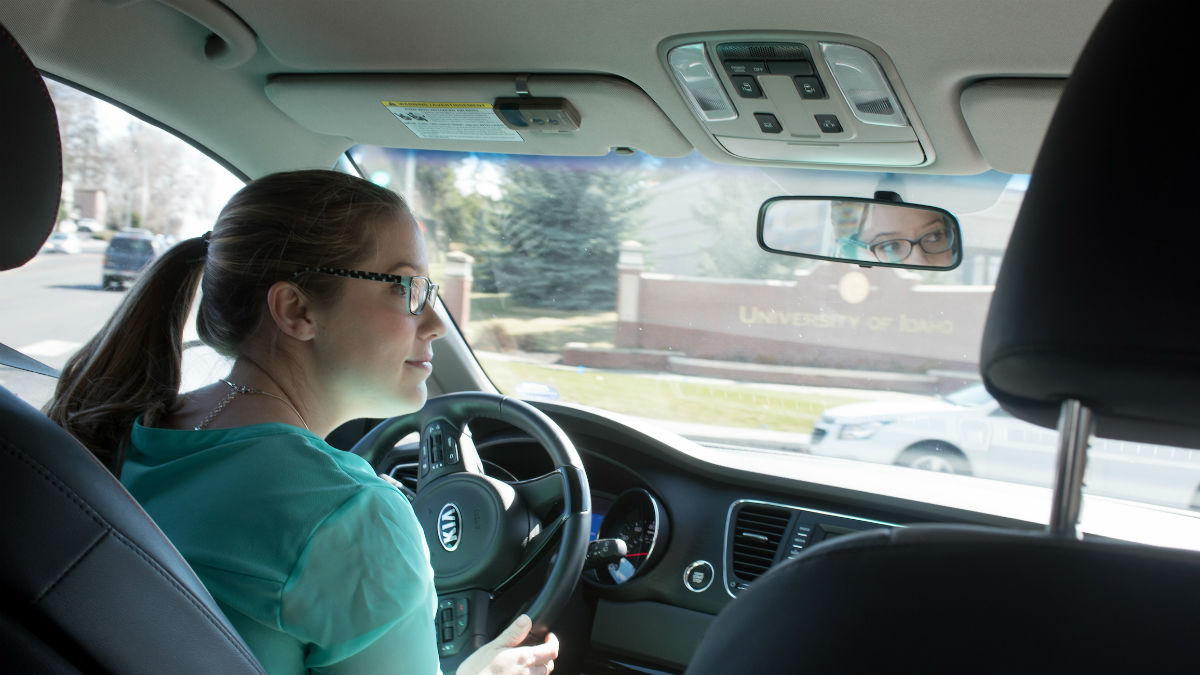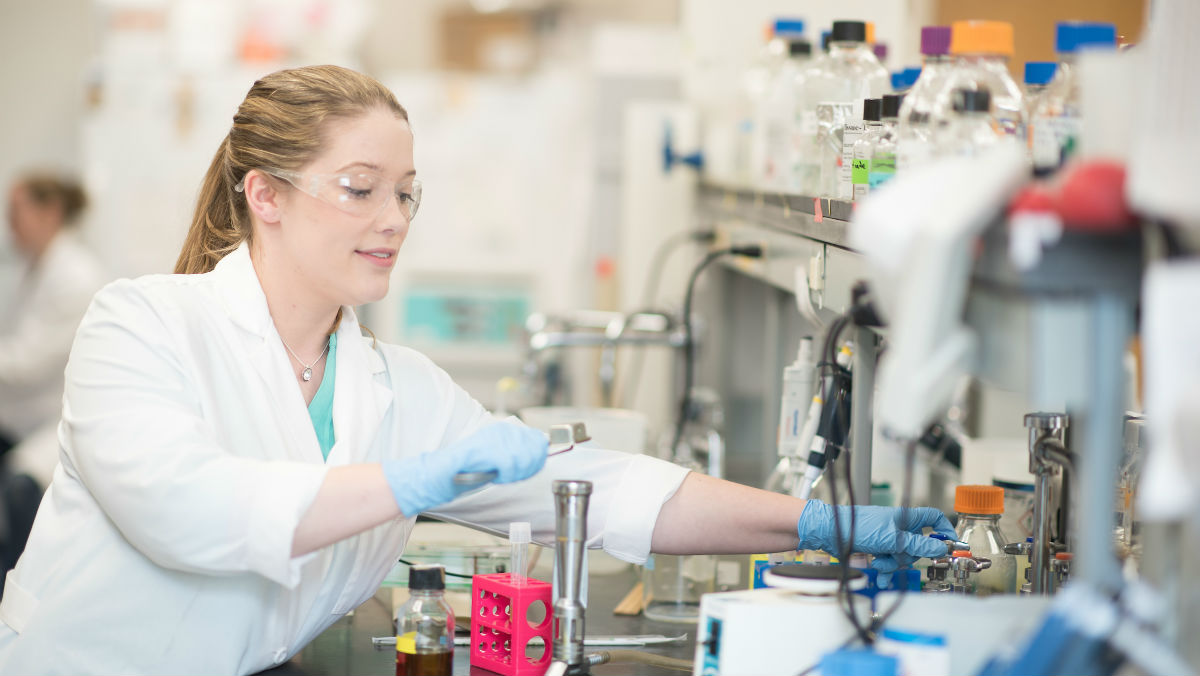Over the Hill and Through the Woods to School
Mellisa Clemons shuttles between life in Coeur d’Alene and classes in the College of Science in Moscow
Mellisa Clemons will earn her bachelor’s from the University of Idaho’s College of Science this spring. During her tenure at U of I, she has taught lab classes at North Idaho College (NIC) three nights a week, raised four children, conducted research and run two online businesses.
And the 34-year-old has done all that while commuting more than 20 hours a week between her home in Coeur d’Alene and her courses on U of I’s Moscow campus.
Back to the Classroom
Clemons enrolled in NIC immediately after high school but dropped out to focus on teaching piano lessons. During the economic recession in 2008, piano lessons became a luxury. So, in 2010, Clemons enrolled at NIC.
Her first cadaver dissection inspired her to delve into biology.
“I loved studying biology, especially how the human body works,” said Clemons. “The goal was to become a medical examiner because there wasn’t the fear of killing someone.”
After completing her associate degree in 2014, Clemons taught anatomy and physiology labs at NIC. After a year and a half, she decided to enroll at U of I and pursue a medical degree.
Where There’s a Will, There’s a Way
Clemons knew that moving to Moscow was impossible. She had three children already in school, and her husband, Stephen, had a good job in Coeur d’Alene.
“It made more sense to have one person make all the sacrifices than my whole family making the sacrifices,” Clemons said. “And my family — including my husband, mom and kids — have been incredibly supportive.”
As part of that sacrifice, Clemons spent $22 on gas a day and made 255 round-trips between home and U of I. The hardest part was getting up when her alarm buzzed, Clemons said, knowing there was a two-hour commute to class. That’s when she had to dig deep.
“My mom went to nursing school as a single mom with three girls. She worked nights to bring in an income,” Clemons said. “I always told myself, if she could do it, I could do it.”
To help support her family, Clemons still teaches three nights a week at NIC and runs two Esty businesses, one dedicated to mood jewelry and the other to tie-dye girl’s clothing.
"I don’t notice that I’m balancing things until I start losing my balance and see something slip,” said Clemons. “My family and friends don’t know how I do it. I just tell them that it’s my form of normal.”

Homing in on a Career
The time she spends driving and studying has influenced Clemons’ decisions about her future.
“I came to the realization that med school was out because I didn’t want to be graduating the same year that my oldest was graduating from high school,” Clemons said. “I went back to school when he was 4, and I didn’t want him thinking, ‘Wow my mom was in school the whole time I was a kid.’”
Instead, Clemons focused on criminal forensics. She applied to U of I’s IDeA Network of Biomedical Research Excellence, a program dedicated to improving biomedical research and education in Idaho. Through INBRE, she joined an NIC satellite lab run by Peter Fuerst, a U of I associate professor in the Department of Biological Sciences. There she analyzed cells in the eye’s retinas during the summer of 2017.
By fall 2017, Clemons was doing research at Fuerst’s U of I lab. She studied yeast proteins that influence cell growth. The study’s findings may provide insights into how the neural network works in humans.
“She is currently helping to organize and train undergraduate students based around a cell signaling project,” Fuerst said. “They are figuring out how cells in the nervous system respond to their environment.”
PhD or Bust
One day, Clemons overheard Fuerst comment about recruiting graduate students for his lab. She piped up and said that she would give up criminal forensics to be his graduate student if she could work from Coeur d’Alene.
Fuerst leapt at the offer, and Clemons applied to the U of I doctoral program this spring. Assuming she’s accepted, Clemons will help develop Fuerst’s satellite lab at NIC, visiting U of I for classes or specific experiments. She will continue her work with yeast proteins. After earning her doctorate, Clemons wants to continue teaching and conducting research. Just as her instructors helped her reach her full potential, Clemons wants to help her students pursue their educational goals.
“When it comes to succeeding at graduate school, Mellisa has a lot of things going for her,” Fuerst said. “She just has a very positive attitude. She doesn’t let things get to her and is exceptional at keeping track of multiple moving pieces.”

Article by Leigh Cooper, University Communications and Marketing.
Published in April 2018








